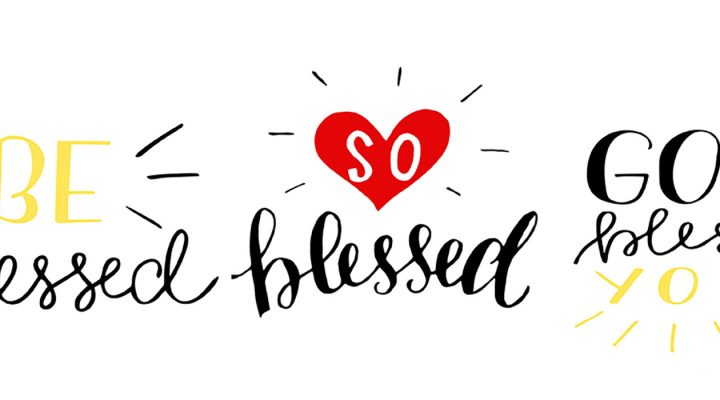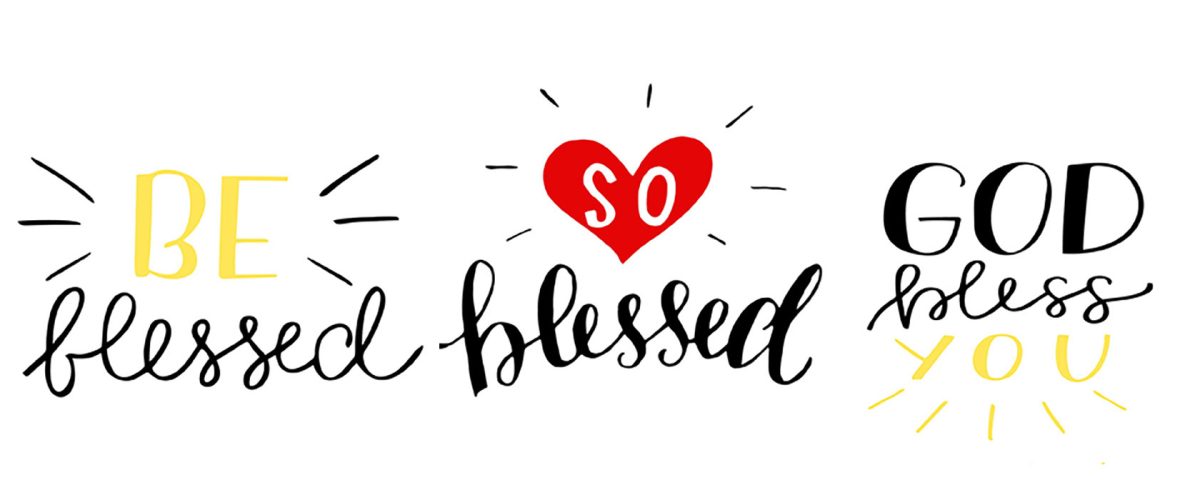This is the second in a November series produced by BNG on what it means to be “blessed,” a word so flippantly used that it often loses meaning.
#Blessed. It’s as common these days as saying the perfunctory “God bless you” after someone sneezes — and carries about the same weight. As pop theology is prone to do, the prosperity gospel has hijacked a perfectly good word and drained it of all potency and substance. Theology has consequences.
I do think of myself as blessed. And yet I shrink from the word when it spills from the lips or social media feed of an acquaintance. I can’t help but question whether our experience and understanding of “blessing” is even remotely the same.

Ann Bell Worley
There’s no joy for me in bursting someone’s #blessed bubble, so I never challenge it (aloud), but I do wonder how their status would hold up if life took an unexpected turn.
Shortly after we received my son’s rare genetic diagnosis, when he was still a baby, a close relative said something to me about God “healing” him. My response was visceral. We’d been at odds theologically for a number of years already, and here we weren’t talking about an abstract concept but about my child.
“God made him this way inside my belly,” I said. “He doesn’t need to be healed.”
I relayed that story to a trusted friend, who is also a hospital chaplain, and I remember his response well. “Maybe you should tell her,” he said, “that she can’t bless this child unless she accepts this child.”
“Maybe you should tell her,” he said, “that she can’t bless this child unless she accepts this child.”
For me, he landed on a beautiful truth — that blessing is not about our present circumstances or lot in life being easy or even desirable, but rather about God’s radical acceptance of all humanity and our call to participate in it. Blessing is not something we wear as a badge of honor or hold over and against others, like winning a championship, but something we recognize and appreciate and, ultimately, share. Blessing is not about good fortune; it is akin to God’s love.
As a mother, I knew our child was blessed by God exactly as he came to us and that part of our work as his parents was to accept him fully, to give him our blessing. Those who never have been through the experience of having a child with disabilities may assume that comes naturally, but I can assure you it does not. Grief and disappointments large and small can take us by surprise at every new phase of development. The losses we feel are profound and don’t just go away because we love our child. Acceptance — blessing — is an ongoing assignment.
A further complication: Around age 4, our son developed a neuro-immune disorder, whereby common viruses and environmental factors trigger a panorama of psychiatric symptoms. We suffered through the madness of explosive, unexplained emotions and the toll they took on our family for years. We struggled to say “yes” to our child and “no” to the “behaviors” that wreaked havoc on our life, symptoms of an illness that were truly out of his control. It was a hard balancing act, an incongruent existence, and one we are still practicing 10 years later.

“The Wales Window for Alabama,” given to 16th Street Baptist Church in Birmingham, Ala., after the 1963 bombing.
Around the time we finally got the proper diagnosis and began treatment, our minister told me about an iconic stained-glass window in the 16th Street Baptist Church in Birmingham, Ala., the site of a racially motivated bombing in 1963 that took the lives of four young girls. The window is an image of Jesus on the cross, given to the church by the people of Wales after the bombing. If you look closely, one of Jesus’ hands is open as if saying “yes,” and the other is facing away as if saying “no.” This image has stayed with me as a reminder of God’s great “yes” to humanity and “no” to all the powers that threaten to dehumanize and destroy what God has called good.
My son is a beloved child just as he is. Whatever struggles he endures as a result of his illness, and we endure as his parents, I always come back to God’s great “yes.” He is blessed, accepted, created in the very image of God, no less than you or me.
People the world has been slower to accept — people of color, those with disabilities, the LGBTQ community, and countless other groups who are marginalized — are blessed, accepted, created in the very image of God, no less than you or me.
“We are not ‘blessed’ because God is on our side, as if God is uniquely for us and not for others.”
We are not “blessed” because God is on our side, as if God is uniquely for us and not for others (a theology the bomber might espouse). We are not “blessed” because we are doing well in our job or because everything in our life happens to be in alignment at a given moment in time. We are “blessed” because we are deeply loved by God, who blessed all of creation in the beginning. And we are “blessed” to bless others as an act of solidarity with God.
Following my chaplain-friend’s wisdom, I’ve been reflecting on blessing not so much as a noun (the state of being fortunate), but as a verb, an act of acceptance and embrace. Imagine a shift in popular culture, from the passive act of being blessed to a movement of blessing, where we see ourselves as actors rather than lucky recipients. #FromBlessedtoBlessing.
But be forewarned, the thing about acceptance, about loving deeply, about blessing, is that it isn’t always sugar-coated. Sometimes it’s messy, even bloody. Just ask Jesus. It might require the death of our previous notions about blessing. Just ask the parents of a child with disabilities.
To bless is to affirm what is good and right and beautiful even in the midst of pain. Which, in my experience, is very true to life. To appropriate some words from Leonard Cohen, Blessing (love) “is not a victory march. It’s a cold and it’s a broken Hallelujah.”
Ann Bell Worley is a Houston-based writer and editor and the mother of two children, one of whom has a rare XY chromosome variation as well as a complex neuroimmune disorder. She is the author of two children’s storybooks based on Nurtured Heart Approach and the creator of www.graycoloredglasses.blog, which focuses on the challenges of parenting a medically complicated child (when she finds time to contribute). She also writes a parent blog for The Focus Foundation, a research-based agency dedicated to identifying and assisting families and children who have X & Y Chromosomal Variations, Dyslexia and Developmental Dyspraxia.
Other articles in this series:
‘We’re so blessed!’ | Opinion by Mark Wingfield


